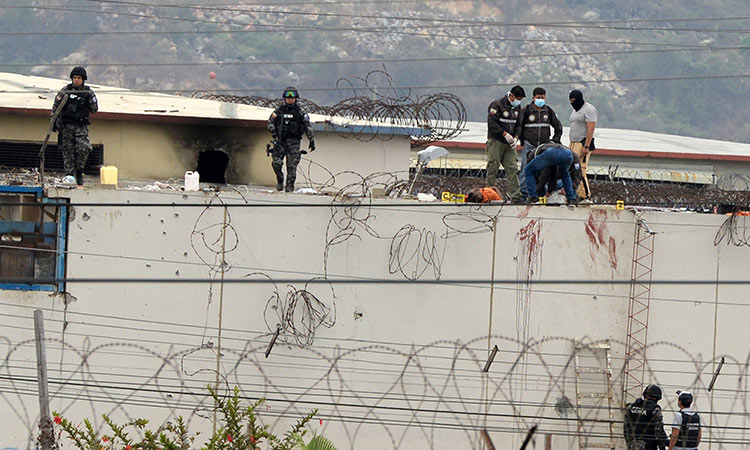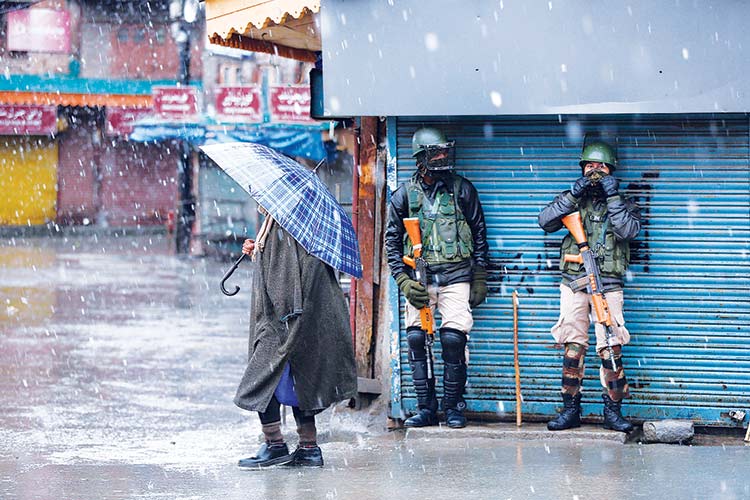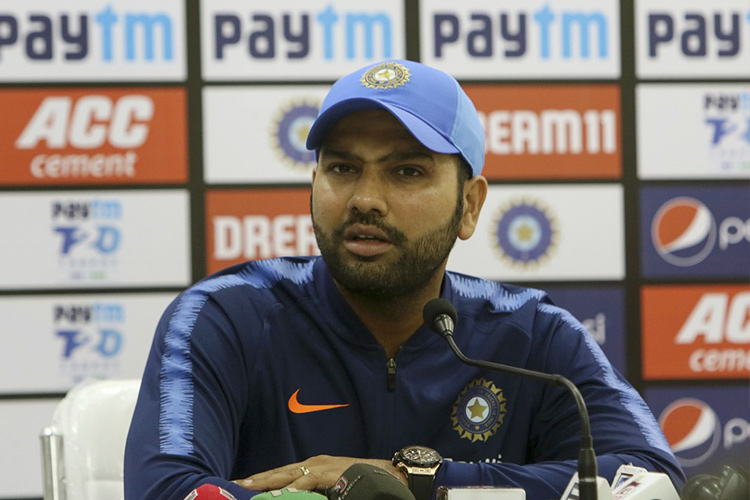Mooting drastic steps to curb crime in US

Illustrative image.
Some Republican contenders for their party’s 2024 presidential nomination have turned to a blunt policy proposal to tamp down on crime: killing criminals.
The approach is not entirely novel, and it no doubt would face legal challenges. Major Republican presidential candidates have long advocated for an expansion of the death penalty, and former President Donald Trump, the frontrunner for the Republican nomination, said police should rough up criminals during his 2017-2021 term.
But Republican strategists involved in previous campaigns and experts in political rhetoric say that calls to shoot, kill or otherwise injure criminals, at least those who commit the most heinous crimes, appear to be more common during this Republican primary race than they have been in other cycles.
The reasons are various, those people said.
Trump received little political blowback from inside the party for his rhetoric toward crime while in office, when he routinely called criminals “animals” and “thugs,” noted Doug Heye, a long-time Republican strategist.
Crime, meanwhile, is a greater concern for voters than it has been in previous elections, even as crime trends are mixed, according to a Reuters report.
Violent crimes, including rape and murder, declined in the United States in 2022 from the previous year, according to a report released by the Federal Bureau of Investigation. At the same time, property crime and aggravated assault were up, while the 21,156 murders reported in 2022 were above pre-pandemic levels.
Some 88% of respondents in a September Reuters/Ipsos poll said crime would be an important issue for determining who gets their vote in the November 2024 general election.
During a September speech in California, Trump made headlines for saying, “If you rob a store, you can fully expect to be shot as you are leaving that store. Shot!” He did not say whether store owners or police would be doing the shooting.
The former president has reiterated previous calls for drug dealers to receive the death penalty, despite legal scholars questioning its constitutionality, the Reuters report adds.
Florida Governor Ron DeSantis, Trump’s top challenger, has said repeatedly he would authorise deadly force against suspected smugglers crossing the US-Mexico border, leaving them “stone-cold dead.”
DeSantis has signalled he is open to firing missiles into Mexico to kill narcotics kingpins involved in the trade of the synthetic opioid fentanyl that is fuelling a deadly drug crisis in America. He and several other contenders have signalled they are also open to sending special forces into Mexico, the US’s top trade partner, to kill suspects involved in the drug trade.
During the spring state legislative session in Florida, DeSantis signed a bill expanding the use of the death penalty by, among other measures, allowing its use in cases of child rape, which has not occurred in the US since 1964.
At the most recent primary debate in California in September, former Vice President Mike Pence said he would seek to accelerate executions of people involved in mass shootings.
Pence has said he supports tough-on-crime measures paired with criminal justice reform, indicating he still supports a measure he signed as the governor of Indiana in 2015 to reduce the population of low-level offenders in state prisons.
Practically speaking, some of the proposals the candidates have put forward are likely illegal and their efficacy is untested, raising questions about whether they would be put into practice, legal experts say.
For instance, the US Supreme Court holds that the application of the death penalty for crimes that do not result in the death of the victim is generally unconstitutional. In 2008, the court left open the possibility of the death penalty for “drug kingpin activity,” though it has never been applied.







